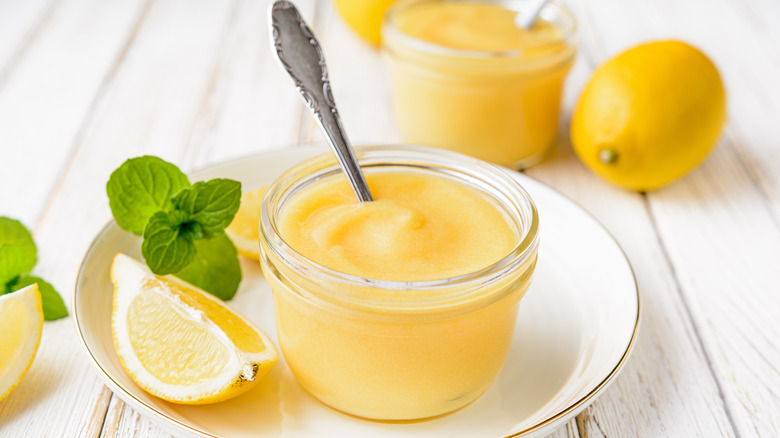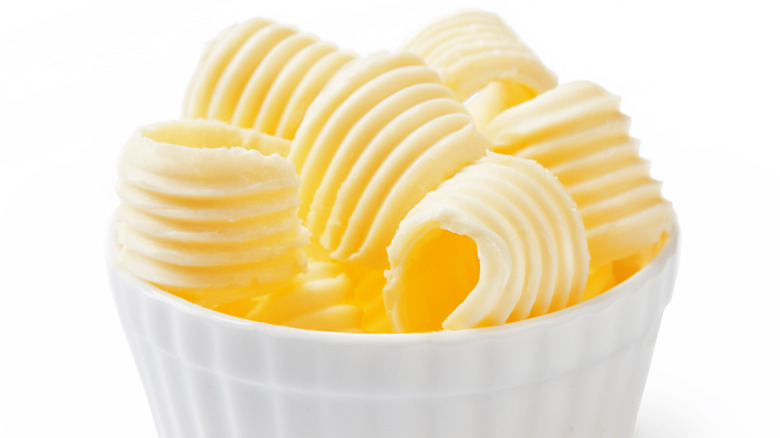The Key To Giving Lemon Curd A Hint Of Salt Without The Grit
Lemon curd. It's tangy, refreshing, a little bit sweet, and a key ingredient in many desserts. Considered to be a "traditional English spread," lemon curd is often made up of lemon juice, sugar, eggs, and butter. The cooking process itself is also considered difficult for even seasoned cooks, as noted by the NCHFP. One must master the art of separating eggs, double-boiling, and straining via a mesh strainer to achieve the thick, glossy consistency of lemon curd.
The interesting thing is that lemon curd used to be called "lemon cheese" way back in the day. Sugar was used to grate the outside of lemons to "extract the zest and aromatic oils," which were then mixed into lemon cheesecakes, per British Food History. Nowadays, lemon curd can be poured into tartlet shells, glazed over cakes, or spread on breakfast pastries. MasterClass also suggests incorporating it into buttercream frosting for a lemony twist on cupcakes.
Salt is often a required ingredient, but this addition can cause a gritty, almost sand-like texture, per Southern Living. So skip the salt (and the grit) and try this ingredient instead.
Rich and buttery
Salted butter is the perfect addition to lemon curd because it adds salt whilst keeping the mixture uniform, per Southern Living. In terms of the salt content in salted butter, Chatelaine states an average of eight milligrams of sodium can be found in one gram (which is the equivalent of .24 teaspoon) of butter. In other words, one cup of salted butter has about three-quarters teaspoon of salt. Since the average amount of butter for lemon curd recipes ranges between one-third to one-half cup of butter, you're looking at one-quarter to three-eighths teaspoon of salt from the salted butter, respectively.
Now, most recipes call for either a pinch of salt or between one-eighth to one-quarter teaspoon of salt, per these two recipe sources: Food Network and Martha Stewart. Thus, it seems like a safe bet to substitute salted butter for unsalted butter without scaling it up or down. Granted, based on the numbers above, you might get an extra one-eighth teaspoon of salt in the lemon curd mixture, but this amount is so marginal that it shouldn't affect the finished product. (The extra one-eighth teaspoon of salt was derived from subtracting the highest average salt amount in lemon curd recipes from the highest average salt content in one-half cup of salted butter, which would be three-eighths teaspoon to one-quarter teaspoon.)
Math aside, the use of salted butter is an effective way to incorporate a touch of salt into a lemon curd mixture without comprising its consistency.

